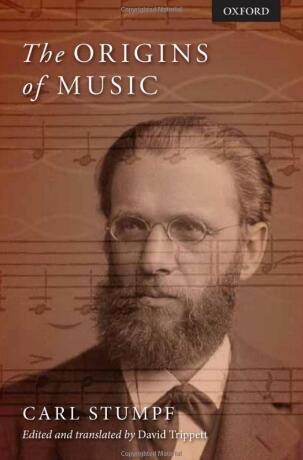The Origins of Music
著 者:Carl Stumpf
出版社:Oxford University Press
出版时间:2012年
ISBN号:978-0-19-969573-7
页 数:267页
包 装:hbk
索书号:J60/S8031
所在库室:锦江校区图书馆9楼教参阅览室1册
内容简介:
The Origins of Music was first published in German in 1911. In this text Carl Stumpf set out a path-breaking hypothesis on the earliest musical sounds in human culture. Alongside his research in such diverse fields as classical philosophy, acoustics, and mathematics, Stumpf became one of the most influential psychologists of the late 19th century. He was the founding father of Gestalt psychology, and collaborated with William James, Edmund Husserl, and Wolfgang K?hler.
This book was the culmination of more than 25 years of empirical and theoretical research in the field of music. In the first part, Stumpf discusses the origin and forms of musical activities as well as various existing theories on the origin of music, including those of Darwin, Rousseau, Herder, and Spencer. In the second part of the book, he summarizes his works on the historical development of instruments and music, and studies a putatively global range of music from non-European cultures to demonstrate the psychological principles of tonal organization, as well as providing a range of cross-cultural musical transcriptions and analyses. This became a foundation document for comparative musicology, the elder sibling to modern Ethnomusicology, and the book provides access to the original recordings Stumpf used in this process.
The Origins of Music is available for the first time in the English language as a result of a collaboration between the European Society for the Cognitive Sciences of Music (ESCOM) and Oxford University Press. It is a fascinating volume for all those with an interest in the history of psychology and music. It appears here in tandem with Self-Portrait,Stumpf's autobiography of 1924, in which he outlines the rich life experiences behind his research career alongside his own explanation of his scientific and cultural legacy.
目录:
Section I Introductory essays
Section II The origins of music (1911)
Section III Carl Stumpf:Life and work
评价:
"Trippett's translation has brilliantly made use of the internet ... to make many of the recordings Stumpf references in this work available online ... Should David Trippett have only translated The Origins of Music, it would have yet been an invaluable contribution to the field. However, as editor and translator, he goes above and beyond by providing two essays prior to the book, and a new translation of Stumpf's autobiography ... These materials provide a valuable frame for The Origins of Music by supplying a helpful context within which to consider Stumpf's contributions. ... the translationofStumpf's The Origins of Music is a timely and valuable addition to our scholarly literature. ... ESCOM has done the field of music cognition a wonderful service in funding a new trans- lation of an important early work."
——Music Perception, July 2013
"... a valuable resource for researchers and scholars studying Stumpf or the history of psychology, cognitive science, music psychology, ethnomusicology and musicology. One of the most valuable aspects of this volume is something not included as part of the 1911 publication of Origins of Music. Trippett includes a collection of sound files for 20 of the 67 musical examples found in Part II ... These ... are a goldmine. They allow us to hear what Stumpf describes and they bring us an objective piece of different musical cultures from the turn of the twentieth century."
——Psychomusicology: Music, Mind and Brain, August 2013
"The translation under review represents a project richly worthy of Stumpf's contributions to the sciences of music, surely among them, ethnomusicology. David Trippett's translation effectively remains true to the German formulations, while producing a text that contemporary readers will find very readable (and at times quite delightful). The introductory essays, especially the one by Trippett, are very helpful. The inclusion of Stumpf's 1924 self-portrait ... brilliantly draws the reader closer to the author and his world. The Origins of Music published in this modern edition, would enrich any course in music history, music theory, cognitive musicology, and ethnomusicology."
——Musicae Scientiae, September 2013
"This is a new translation, from German into English, of Carl Stumpf's work The Origins of Music from 1911... Although the book is now 100 years old, it is enjoyable to read. The argument is logical and well-founded, and the text seems in many ways very modern... What fascinates most is that the book shows how one man's painstaking study of "The psychology of tone" and "The origins of music" formed the basis for two completely new fields of research: experimental psychology and ethnomusicology."
——Journal of the Norwegian Medical Association, July 2013

